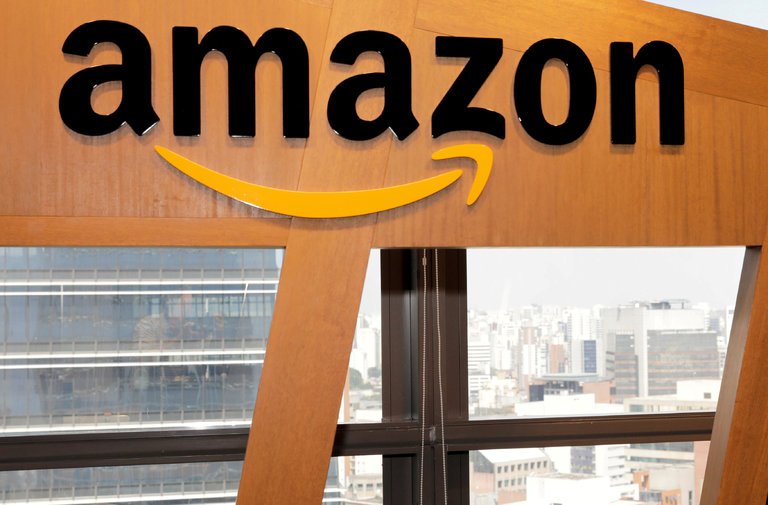Supported by More Than Just a Sell-Off in Tech?: DealBook Briefing
Good Wednesday. Here’s what we’re watching.
• Are we witnessing the end of the tech mania?
• Amazon has shed more than $50 billion in market value.
•Are investors waking up to Tesla’s real problem?
• Mark Zuckerberg agreed to testify before Congress.
• SoftBank and Saudi Arabia are planning the world’s largest solar energy project.
Get this in your inbox each morning. Sign up here.
Are we witnessing the end of a mania?
Investors, always willing to believe in technology companies, spent the last three years piling into the shares of companies like Facebook, Amazon and Netflix with special abandon. Now the intellectual underpinnings of the tech rally are being seriously tested.
Advertisement
Continue reading the main story
Stocks in the best-known tech companies have plunged in recent days. The NYSE FANG+ index, which tracks the share price of 10 companies, including Facebook, Apple and Amazon, has fallen nearly 14 percent from its recent high. Given that the index has soared 50 percent in just the past 12 months, the recent decline could just be the sort of sell-off that punctuates any long-term rally.
Continue reading the main story
Still, several large tech companies suddenly face challenges that could undermine their ability to transform whole industries. And as we’ve seen after previous fervors, investors can take a long time to regain their faith.
Facebook is down 20 percent from its recent high. Most of the slide came after news reports showing how the company’s data was misused. Investors have to grapple with the possibility that Facebook won’t be sharing as much data as it does, undermining its ability to generate ever-increasing amounts of advertising revenue.
Nvidia, a computer chip maker intent on being a leader in automated driving technology, is off 12 percent from its recent high. The company said on Tuesday that it would halt tests of its autonomous driving technology on public roads after an Uber self-driving car hit and killed a pedestrian in Arizona.
Tesla is not a tech stock, but it is included in the FANG+ index, and its supporters believe deeply in its power to revolutionize the auto industry. Growing fears about Tesla’s ability to finance its expansion have helped drag its stock down 33 percent from its recent high. Ominously, the price of Tesla’s bonds is also falling, signaling that the company is losing the confidence of creditors.
Of course, on their march higher, tech stocks overcame obstacles, like management problems at Uber and the poor performance of Snap’s initial public offering.
But the latest problems have raised deeper, broader doubts, and that may keep the uncertainty around longer. Investors have viewed automated driving technology as a huge potential source of growth for some companies. But after the Uber incident in Arizona, those companies may take a more realistic look at what they have to spend to create a technology that is efficient and safe, and conclude that they have to pull out of the race or pare back. Users of social media and regulators may prevent social media companies from sharing so much of their data with advertisers, and that could restrain revenue growth.
And if the passion for two or three big tech companies wanes, the cooling may spread.
— Peter Eavis
Amazon has shed more than $50 billion in market value.
The reason?
Advertisement
Continue reading the main story
Reports that President Trump wants to rein in the e-commerce giant.
Jonathan Swan of Axios, citing anonymous sources, reported:
“Trump has talked about changing Amazon’s tax treatment because he’s worried about mom-and-pop retailers being put out of business.”
Mr. Swan added:
“Trump’s wealthy friends tell him Amazon is destroying their businesses. His real estate buddies tell him — and he agrees — that Amazon is killing shopping malls and brick-and-mortar retailers.”
Shares of Amazon have tumbled more than 7 percent at one point Wednesday, but they pared those losses after a White House official told Reuters there were no specific policy changes related to Amazon being considered at the moment. But the official added that the administration is always looking at different options on a range of policy issues.
How concerned should investors be?
GBH Insights analyst Daniel Ives writes:
“While it’s now a hand holding time for Amazon given this new regulatory potential threat, we believe the reality of these worries altering the company’s business model and future tax structure are low and we would be buyers of the name on weakness.”
Guess which companies are benefiting from Amazon's woes? Retailers, the FT points out.
On a day when the stocks on Wall Street are flat, Macy’s was up 3.5 percent, J.C. Penney has gained 5.5 percent, Walmart rose 1.7 percent, Target increased 1.8 percent, and Kohl’s was up 2.4 percent.
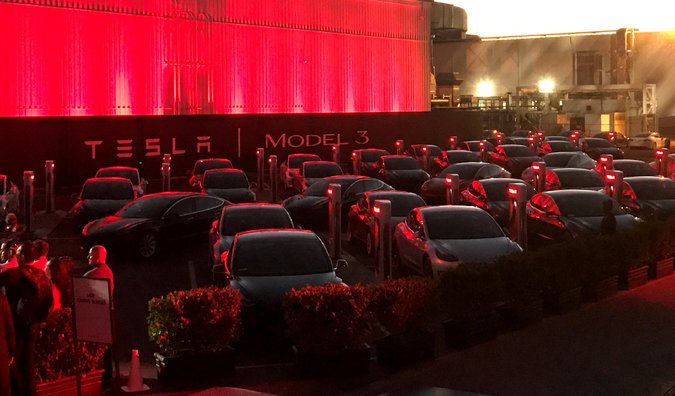
Are investors waking up to Tesla’s real problem?
The electric carmaker’s shares are down 7 percent Wednesday, after plunging 8 percent on Tuesday.
Tuesday’s slide was driven, in part, by the National Transportation Safety Board’s announcement that it was investigating a fatal crash last week involving a Tesla vehicle in California. News that Jaguar Land Rover was teaming up with Alphabet Inc.’s Waymo unit probably didn't help either.
But the continued decline in Tesla’s stock — its shares are down more than 20 percent since mid-March — speaks to the bigger concern surrounding Tesla: How it funds itself.
Investors have grown increasingly worried as Tesla burns through cash and struggles to meet its own production goals for the Model 3. Late Tuesday, Moody’s downgraded Tesla’s credit rating further into junk territory and said its outlook on the company is negative. The credit ratings agency cited production delays and said Tesla may soon need to raise more than $2 billion.
Those concerns can be seen not just in Tesla’s stock price but also in the trading of its debt. The FT points out that “Tesla’s eight-year bond maturing in 2025 traded on Wednesday at 87.6 cents to the dollar, the lowest since issuance. The yield has surged to 7.5 percent from 6.59 percent on Monday.”
Liam Denning of Bloomberg Gadfly writes:
“Challenges on the factory floor and the balance sheet are converging. Drawing inexorably closer to a refinancing wall, Tesla needs a real shot of confidence, and capital, to keep its money machine turning over this year.
“Given Tuesday’s bond blowout, that almost certainly means tapping the equity market again. Nothing like being a motivated seller to put a floor under a stock price, right?”
Is Twitter vulnerable to privacy regulation?
The fallout from Facebook’s Cambridge Analytica scandal has spread to Twitter.
The stock tumbled 12 percent Tuesday after Citron Research’s Andrew Left said he was betting against the social media company because of its vulnerability to regulation around how it handles user data.
Citron short $TWTR. Near-Term target $25 Of all social media, they are most vulnerable to privacy regulation Wait until Senate finds out what Citron has published. https://t.co/nAkRWb8Kcn
— Citron Research (@CitronResearch) March 27, 2018
But analysts at Barclays disagree. They argue in a recent note to clients that Twitter’s data business likely won’t be impacted much by any regulation on its use of user data.
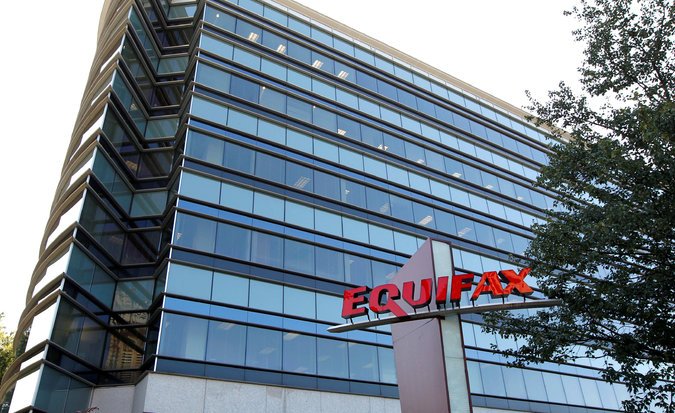
Meet Equifax’s new C.E.O.
The credit reporting company named Mark Begor, a private equity executive who once led General Electric’s credit card business, as its new chief executive.
Advertisement
Continue reading the main story
Mr. Begor, 59, takes over for Paulino do Rego Barros Jr., who has filled the role on an interim basis since September, when Richard F. Smith stepped down after a data breach exposed sensitive personal information, including Social Security numbers, of 148 million people.
Mr. Begor will start at Equifax on April 16.
About Mr. Begor
• The 59-year-old is a managing director at the private equity firm Warburg Pincus. He is also a member of the board at the credit-scoring company FICO.
• Mr. Begor spent 35 years at General Electric, where his duties included leading the conglomerate’s real-estate investment and energy management units. For nine years, he was president and chief executive of the company’s consumer credit business, which was later spun off as Synchrony Financial.
His pay package
Equifax said it would give Mr. Begor stock and options valued at $17 million this year and an annual salary and bonus of up to $4.5 million.
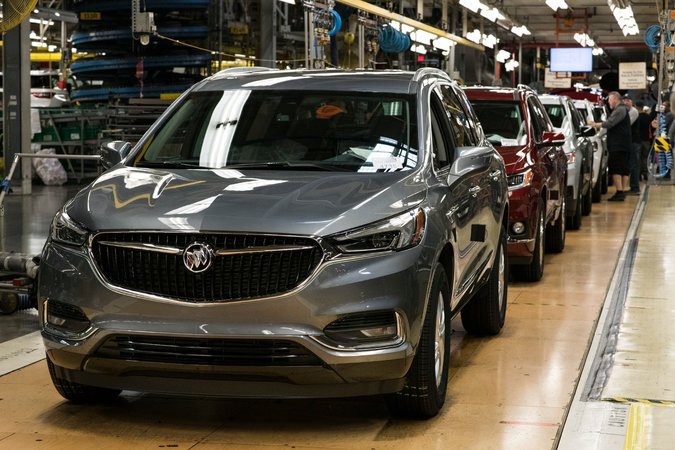
Why the first Trump trade deal may not lead to others
President Trump has scored a significant trade deal with South Korea.
But with Mr. Trump preparing to meet with North Korea’s leader, Kim Jong-un — who just took an armored train trip to Beijing — and the North apparently pressing on with nuclear developments, an “America first” trade stance was far from the only thing pushing the South to sign. More from Michael D. Shear and Alan Rappeport:
The political success of the trade agreement — and its ability to be replicated in other negotiations — is not guaranteed. Many countries have reacted coolly to Washington’s pugilistic approach to trade, viewing the president’s preference to punch first and negotiate later as counter to global interests.
The Trump administration continues to ramp up its trade rhetoric with China. Unidentified sources told Bloomberg that it is considering invoking an emergency law to restrict Chinese investments in sensitive U.S. tech. A separate plan to enact tariffs on $60 billion of Chinese goods has left companies wondering which industries will be targeted. Other Asian countries increasingly fear being caught in the crossfire of a trade war, the WSJ reports.
And nations are already reacting to Trump’s trade moves, erecting barriers to stop the steel and aluminum that faces tariffs in the U.S. being dumped in their markets.
Advertisement
Continue reading the main story
Against this background, NXP sold its 40 percent stake in a Chinese joint venture on chip design.
A reality check for tech?
Companies like Facebook, Amazon and Alphabet have delivered some of the best returns to investors in recent years, powered by the achievements and the promise of social media and artificial intelligence.
But that confidence is evaporating, as investors brace for intensified regulatory scrutiny across the industry. Tech stocks took a pummeling yesterday and in early European trading.
Twitter dropped 12 percent after Andrew Left’s Citron Research said it was shorting the company.
Critic’s corner: The “sector’s growing clout over everyday life also raises the risks of what can go wrong,” Dan Gallagher argues at WSJ’s Heard on the Street.
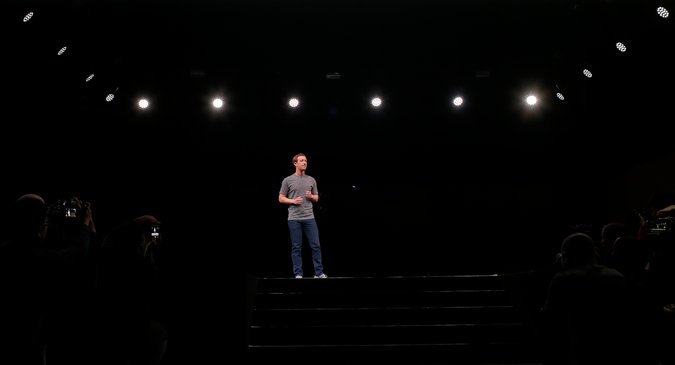
Mark Zuckerberg will face the music
The public outcry over Facebook’s data and privacy settings has grown loud enough that Mark Zuckerberg now says he’s willing to testify to Congress. The company is on a hiring spree for lobbyists, too, and unnamed sources say it’s putting off the promotion of new home products.
The man who started all this, the Cambridge Analytica whistle-blower Christopher Wylie, spoke to British lawmakers on Tuesday and revealed that an employee of Palantir Technologies had suggested that Cambridge Analytica build an app to gain access to Facebook networks. Palantir was co-founded by Peter Thiel, who sits on the Facebook board.
Separately, New Zealand’s privacy commissioner has accused Facebook of breaking a law by refusing to give a man information about him held in other users’ accounts. Fair housing groups are suing over ad targeting, saying Facebook still lets advertisers discriminate. And three Facebook Messenger users are suing on privacy grounds.
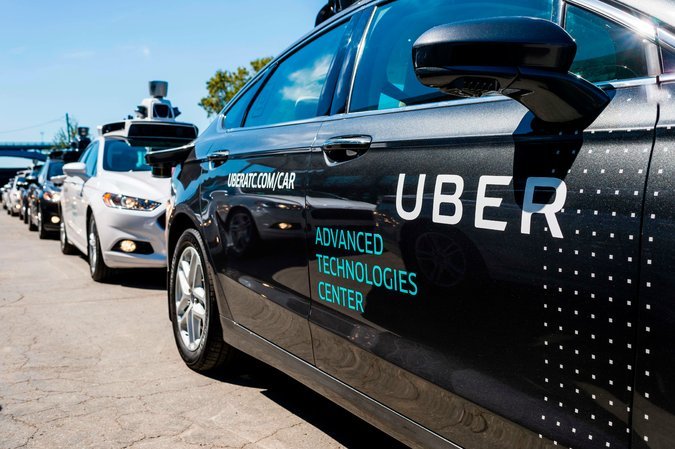
The self-driving slowdown continues
Nvidia — the chip maker whose autonomous-vehicle technology is used by Volkswagen, Tesla, Audi and hundreds of other firms — said it would halt its own tests on self-driving cars, after an autonomous Uber vehicle struck and killed a pedestrian in Arizona. Its shares dropped 7.8 percent.
Here’s Roger Lanctot, an automotive technology analyst with Strategy Analytics:
Nvidia has no choice but to take steps in the context of the fear, uncertainty and outrage likely to be stimulated by a robot car killing a human being. This is precisely the type of event that is capable of slaying a nascent industry in the crib.
Tesla also tumbled 8.2 percent, after the National Transportation Safety Board said it was conducting its second crash investigation of the year involving one of the company’s cars. There’s also anxiety about whether it will hit production goals.
Advertisement
Continue reading the main story
Uber said it would not renew its California permit for self-driving vehicle tests until investigations were complete in Arizona. And it’s facing questions over a decision to scale back on safety sensors.
But Waymo said it still intended to put thousands of self-driving cars — customized Jaguar I-Paces, to be precise — on the road over the next two years.
Critic’s corner: Timothy B. Lee argues in Ars Technica that Uber should sell its self-driving project, which needed a firm with a “methodical, safety-oriented culture.”
The tech flyaround
• Uber has settled a discrimination lawsuit from three female software engineers for $10 million. (Recode)
• Ransomware has hobbled the city government in Atlanta. (NYT)
• Apple unveiled a new iPad aimed at classrooms, where Google has raced ahead. (NYT)
• Oracle won a federal appeal in its multibillion-dollar copyright infringement claim against Google, in a way that could make software developers easier to sue. (WSJ)
• Google bought the GIF platform Tenor. (Verge)
• Snapchat is building a way for people to use their account with third-party apps, Facebook-style. (Recode)
• Robert Mercer, of Renaissance and Cambridge Analytica fame, is also a volunteer police officer in Lake Arthur, N.M. (Bloomberg)
Advertisement
Continue reading the main story
The Washington flyaround
• The former Supreme Court justice John Paul Stevens has called for the Second Amendment to be repealed, in an NYT Op-Ed. Bloomberg looked at how the bankruptcy of the gun maker Remington Outdoor would affect the people suing it for as much as $500 million. And the N.R.A. said it accepted funds from foreign sources, but did not spend them on election campaigns.
• At least 12 states say they would sue if the Trump administration seeks to add a question about citizenship to the 2020 census. A less accurate census — if, say, fewer immigrants were to respond — could distort both government spending and the House of Representatives.
• The F.B.I. found continuing ties between Russian intelligence and a business associate of the former Trump campaign manager Paul Manafort, according to court documents filed by the special counsel’s team. (WaPo)
• A Republican plan for the midterm elections: more tax cuts. (Politico)

SoftBank and Saudi Arabia team up to build a solar park
The $200 billion solar power project would be the largest in the world and could help Saudi Arabia lessen its dependence on oil.
But Jenny Chase, head of solar analysis at BNEF, told Bloomberg: “It is worth noting that many of these memorandums of understanding do not result in anything happening.”
Saudi officials were in New York as part of a tour by Prince Mohammed bin Salman of Saudi Arabia, who spoke to the NYT, urging a tough line on Iran. And Saudi Arabia’s sovereign wealth fund said it was considering opening offices around the world.
Deals flyaround
• Takeda Pharmaceutical said it was considering a bid for Shire that could improve its position in drugs for cancer, gastrointestinal disease and nervous system ailments. (Bloomberg)
• Potential bidders for GlaxoSmithKline’s health nutrition business could include Nestlé, Kraft Heinz and Unilever, unnamed sources say. (Reuters)
Advertisement
Continue reading the main story
• The real estate broker Cushman & Wakefield is interviewing I.P.O. advisers, unnamed sources say. (Bloomberg)
• Tyson Foods has hired Goldman Sachs to explore the sale of its pizza crust business. (FT)
• In a cross-examination during their big merger case, the lead lawyer for AT&T and Time Warner pushed back against the description of Time Warner’s content as “must-have.” (CNN)
• The Carolina Panthers football team could fetch a record sale price of about $2.5 billion. (NYT)
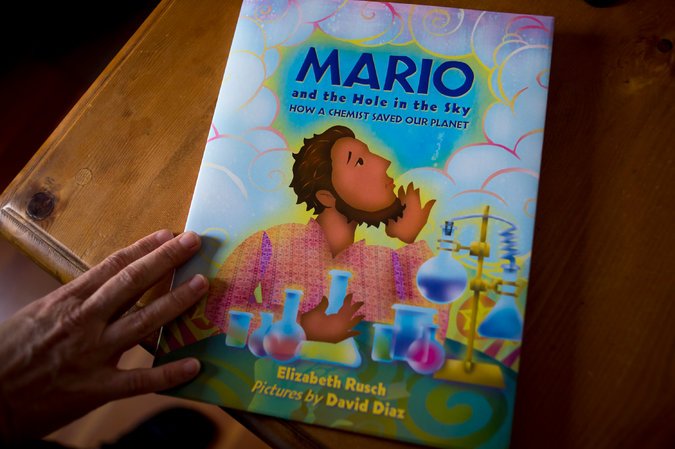
Publishers’ #MeToo dilemma
Books are on hold and deals are being canceled as the publishing sector grapples with accusations of sexual harassment by authors and others.
But the response has not been universal, as publishers weigh lost profits against reputational risks in an industry dominated by women.
Separately, former employees at Wynn Resorts said that managers had for years ignored or dismissed complaints about Steve Wynn’s conduct toward women. A former Miramax employee appeared before British lawmakers today to seek a change in the law on nondisclosure agreements.
The speed read
• The chief executive of Deutsche Bank, whoever it is, will face a challenge regaining investors’ trust: its share price is less than 40 percent of the net worth stated on its balance sheet and it relies a lot on potentially unpredictable Wall Street revenue.
• Wu Xiaihui, former chairman of the Chinese insurer Anbang, went on trial in Shanghai. (FT)
• A key player at the birth of Berkshire Hathaway’s health venture with Amazon and JPMorgan: the Berkshire investment manager Todd Combs. (Bloomberg)
• The former Lloyds Banking Group chief Eric Daniels has won a legal battle over a bonus worth $2.1 million. It was withheld from him after the bank needed a government bailout. (Times of London)
Advertisement
Continue reading the main story
• Netflix’s talent hunting is pushing up Hollywood salaries. (Bloomberg)
• How much would a Warren Buffett investment help G.E.? (Bloomberg Gadfly)
Know someone who would enjoy this newsletter? Tell them to sign up here.
You can find live updates throughout the day at nytimes.com/dealbook.
We’d love your feedback. Please email thoughts and suggestions to bizday@nytimes.com.
Correction: March 28, 2018
An earlier version of this article misstated the amount of a bonus at the center of a legal battle between Lloyds Banking Group and Eric Daniels, the former chief executive. It was $2.1 million, not $2.1 billion.
Correction: March 28, 2018
Continue reading the main story Read the Original Article


